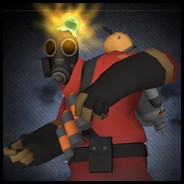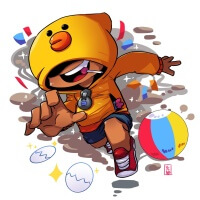Education includes different kinds of learning experiences. In its broadest sense we consider education to be the ways in which people learn skills, gain
knowledge and understanding about the world and about themselves. One useful
scheme for discussing education is to divide these ways of learning into two types:
informal and formal.
Informal education involves people in learning during their daily life. For
example, children learn their language simply by hearing and by trying to speak
themselves. In the same informal manner, they learn to dress themselves, to eat
with good manners, to ride a bicycle or to make a telephone call. Education is also
informal when people try to get information or to learn skills on their own
initiative without a teacher. To do so, they may visit a book shop, library or
museum, watch a television show. They do not have to pass tests or exams.
We consider formal education to be the instruction given at different kinds
of schools, colleges, universities. In most countries, people enter a system of
formal education during their early childhood. In this type of education, the people
decide what to teach. The learners study those things with the teachers at the head.
Teachers expect learners to come to school regularly and on time, to work at about
the same speed as their classmates, and to pass tests and exams. Learners have to
pass the exams to show how well they have progressed in their learning. At the end
of their learning, learners may earn a diploma, a certificate, or a degree as a mark
of their success over the years.
The school system of all modern nations provides both general and
vocational education. Most countries also offer special education programs for
gifted or for physically or mentally handicapped children. Adult education
programmers are provided for people who wish to take up their education after
leaving school. Most countries spend a large amount of time and money for formal
education of their citizens.
General education aims at producing intelligent, responsible, well-
informed citizens. It is designed to transmit a common cultural heritage rather
than to develop trained specialists.
Almost all elementary education is general education. In every country,
primary school pupils are taught skills they will use throughout their life, such as
reading, writing, and arithmetic. They also receive instruction in different
subjects, including geography, history, etc. In most countries almost all young
people continue their general education in secondary schools.
The aim of vocational education is primarily to prepare the students for a
job. Some secondary schools specialize in vocational programs. Technical
schools are vocational secondary schools, where students are taught more
technical subjects, such as carpentry, metalwork, and electronics. Technical
school students are required to take some general education courses and
vocational training. Universities and separate professional schools prepare
students for careers in such fields as agriculture, architecture, business,
engineering, law, medicine, music, teaching, etc.
Задания:
Complete the following sentences in a logical way:
1. Education includes different kinds of...
2. People gain knowledge and understanding about...
3. There are two types of...
4. Informal education involves people in ...
5. Children learn their language simple by ...
6. People get information or learn skills on ...
7. Formal education is the instruction given at...
8. People enter a system of formal education during ...
9. Teachers expect learners to come to school...
10. Learners have to pass the exams to show ...
11. General education aims at producing intelligent...
12. Primary school pupils are taught skills they will...
13. Almost all young people continue their general education in ...
14. Vocational education prepares the students for ...
15. Learners may earn a diploma, a certificate, or ...
Agree or disagree with the following statements; add some more information:
1. There are two types of education. 2. One useful scheme for discussing
education is to divide the ways of learning into two types. 3. Informal education
involves people in learning during their daily life. 4. Formal education is the
instruction given at different kinds of colleges. 5. At the end of learning, learners
do not earn a diploma or a certificate.
105
332
Ответы на вопрос:
Популярно: Английский язык
-
Нужно i. put the verbs in brackets into the past simple or past continuous : 1....
 OwL50528.05.2022 15:27
OwL50528.05.2022 15:27 -
Clap your hands,shake your head, stamp your feet, sit down перевод и транскрипция...
 simakovk924.04.2020 11:17
simakovk924.04.2020 11:17 -
1раскройте скобки: 1) if i were you, i (do) the homework now. 2) if i (live) near...
 zenkov2000cemen09.06.2022 00:42
zenkov2000cemen09.06.2022 00:42 -
Ask questions to the sentence. the children have visited their granny this month....
 ЛеркаXD08.06.2020 22:40
ЛеркаXD08.06.2020 22:40 -
Put the verbs in brackets in the present simple. 1.she (spend) her free time with...
 Scuum01.01.2020 11:17
Scuum01.01.2020 11:17 -
Аещё такое предложение толе с настоящим временем hi, my name s chiara ponti. i...
 Кись12310.06.2022 15:57
Кись12310.06.2022 15:57 -
Listen to the dialogue between Bob and Maggie, and choose True or False for each...
 Ahamad22.11.2021 12:11
Ahamad22.11.2021 12:11 -
Write fairy story. очень Задание на фото...
 ksusha25603.06.2023 18:50
ksusha25603.06.2023 18:50 -
Hercules. Forming Question tags.. Повторение Read the examples below and complete...
 nselt22.09.2022 09:08
nselt22.09.2022 09:08 -
Real-life heroes and heroines Choose the odd one out. ...
 TheATN26.03.2020 14:48
TheATN26.03.2020 14:48
